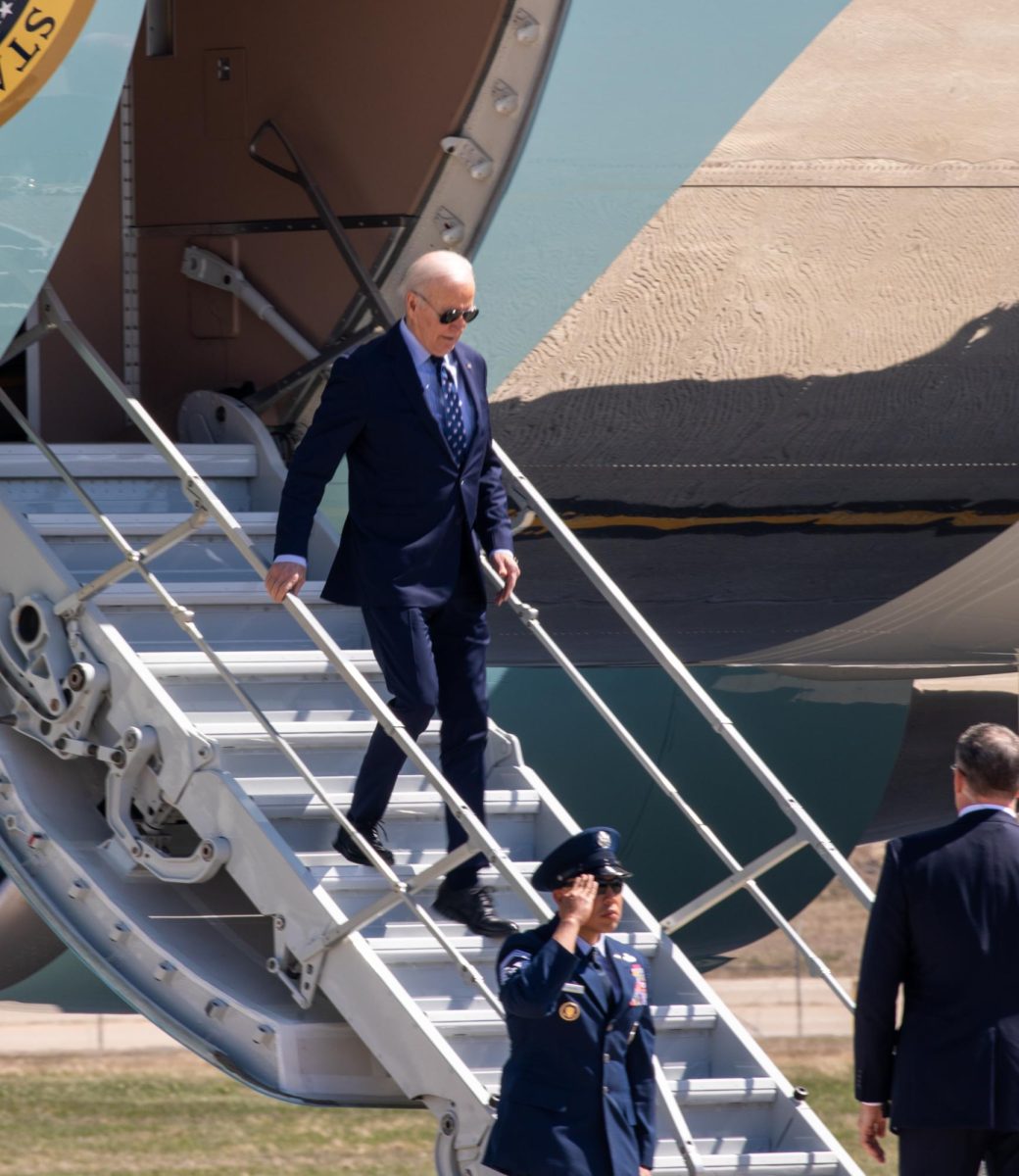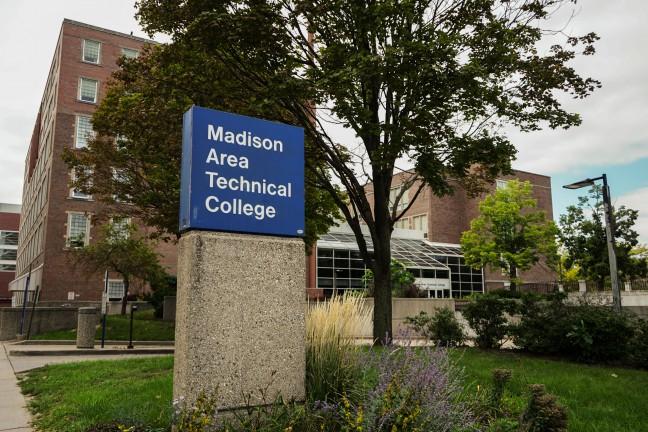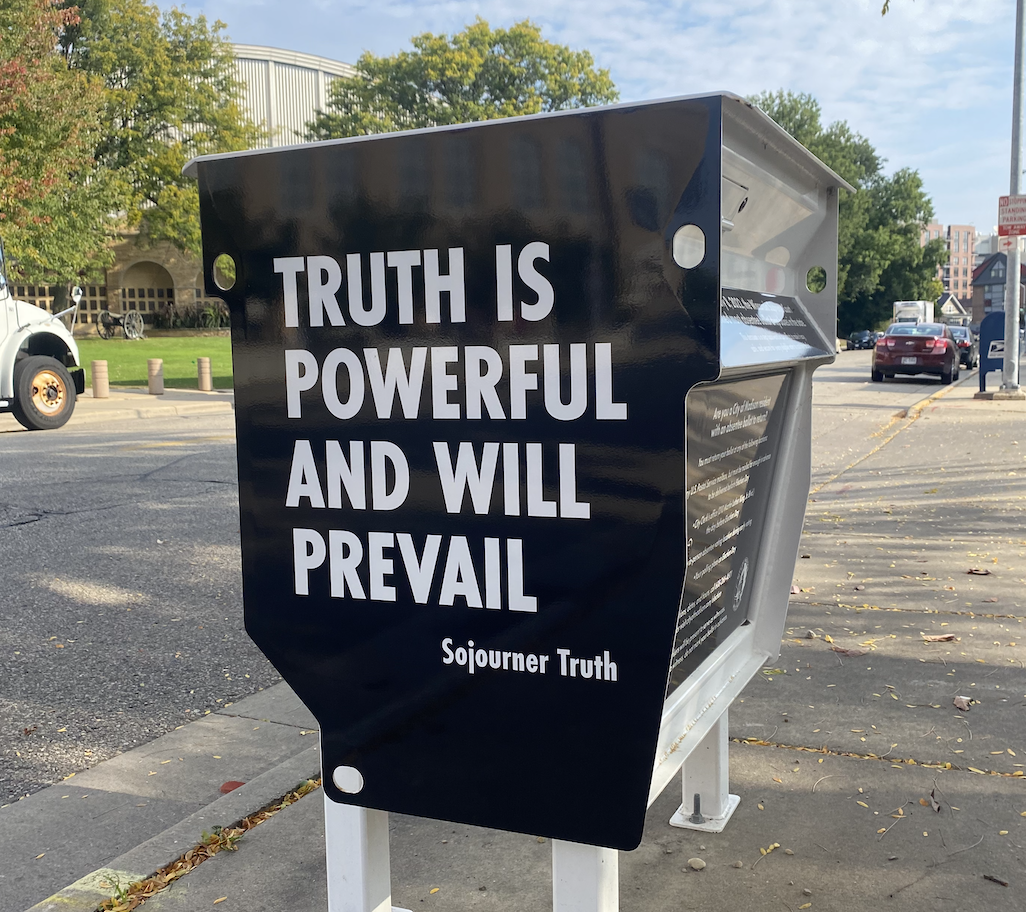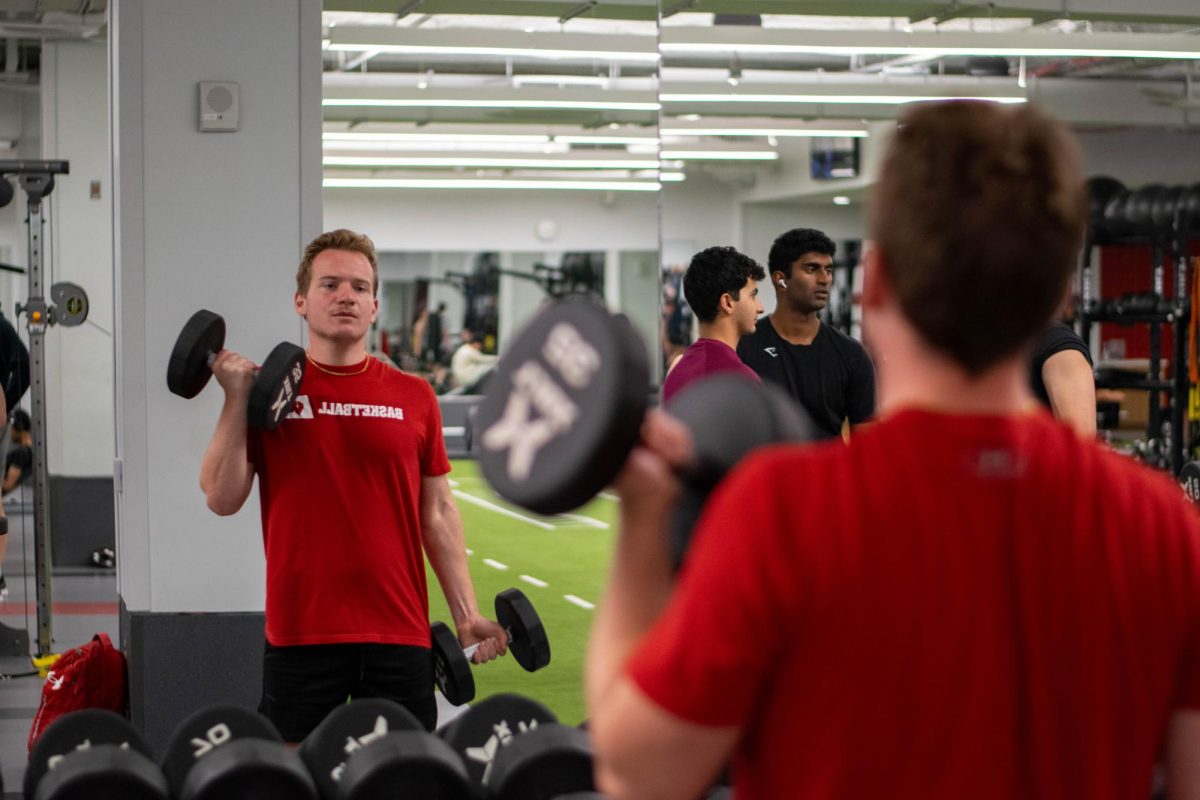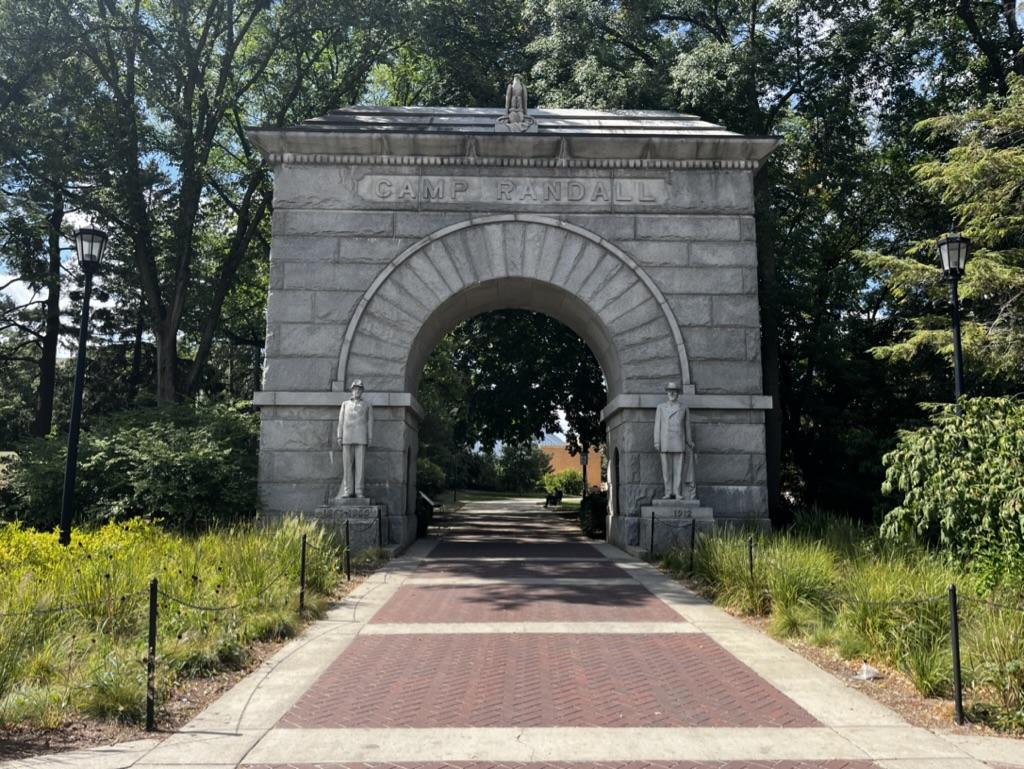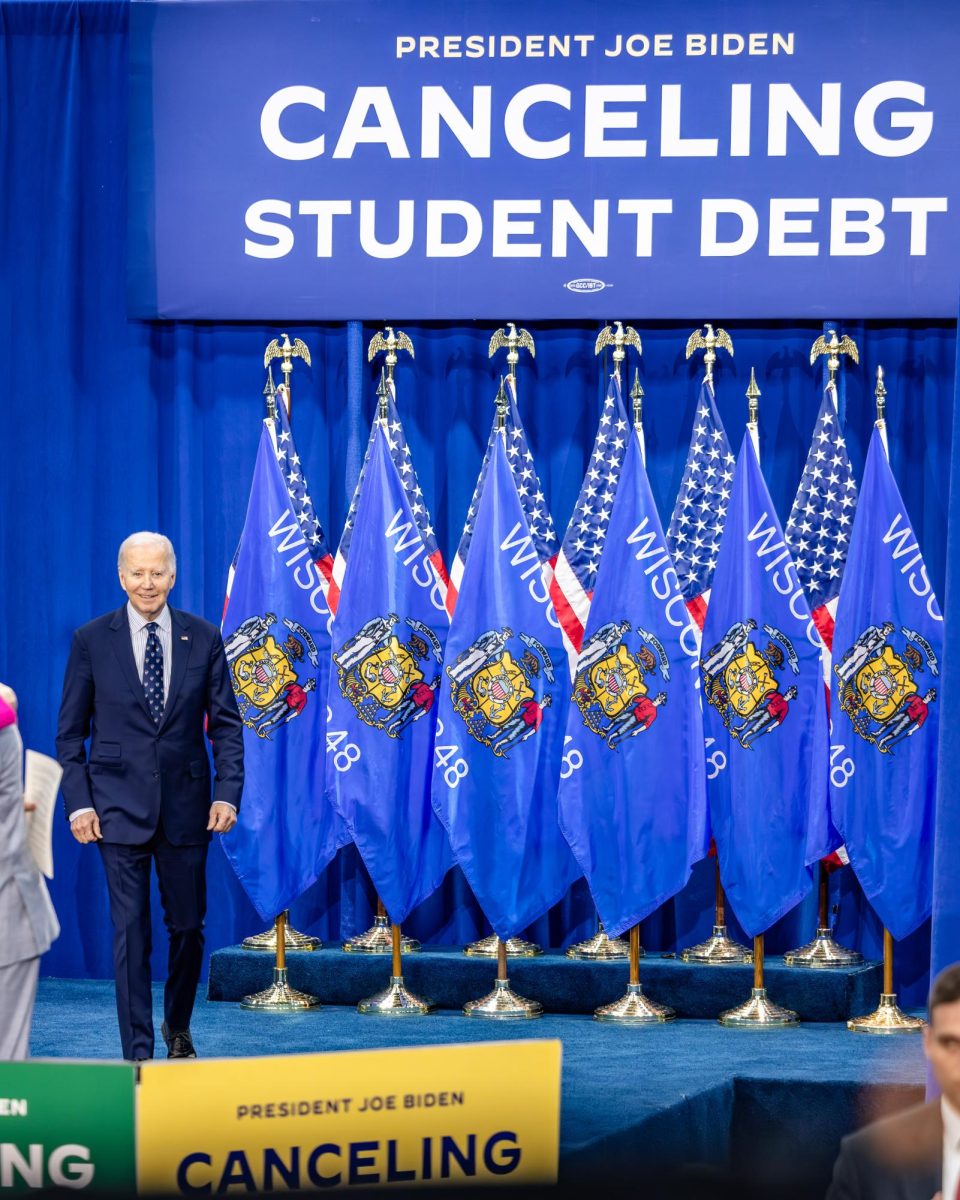University of Wisconsin student voting increased 7% from 2016 to last November’s election, which one UW professor attributes to anti-Trump sentiment and pushes for climate change and civil rights legislation.
But are these the only factors causing an increase in voting participation?
It is no surprise after four years of mass hatred toward former President Trump, many people would want to do everything in their power to get him out of office. It is not uncommon for citizens to aspire to change once a presidential term is completed. Oftentimes, voters are illuminated to policies that were not addressed and look for those in another candidate.
For example, after eight years of Obama, many citizens wanted more fiscally conservative policies. After Trump, many citizens wanted more stability, kindness and normalcy from their president.
But I don’t agree pushes for climate change and civil rights legislation were the main factors that drove voter participation up by 7%. Instead, I think increases in voting had more to do with increasing polarization, media presence and students recognizing how impactful their vote is — rather than specific policies on the table.
After the 2016 election, the media had a presence like never before. In a National Review article, writer Charles Cooke discusses how during the Biden campaign, major outlets like the New York Times, the Washington Post, The Atlantic and NPR prominently featured any news that could “plausibly hurt President Trump while assiduously refusing to run stories that might have hurt Joe Biden.”
Letter to the Editor: Wisconsin’s redistricting process needs to change
Media presence brings much more urgency to political conversations. Coverage predominantly featuring news bashing one political candidate creates a spiral of silence.
The spiral of silence is a theory that argues the media has a powerful effect on us, making assumptions about what the public opinion on a subject is, which can lead to us silencing seemingly minority opinions.
There is a growing stigma around people who choose not to cast their vote in a presidential election. Fear of rejection for not voting could also be a factor driving higher voter turnout.
The spiral of silence theory also claims we might outwardly express opinions different from our internal ideologies. Negative attitudes towards people on each side of the aisle could cause people to cast their vote for an opponent they might not even agree with.
A survey conducted by the Knight Foundation found that out of more than half of the students surveyed, 70% said they’d vote for Biden, compared with only 18% who said they’d cast a ballot for Trump.
But only around half of those Biden voters had a favorable view of the former vice president. A vote for Biden was not really a vote for him — just a vote against Trump.
Furthermore, polarization could be a cause of increasing voter participation in the U.S. According to a study conducted by the Pew Research Center during the 2020 election, both Trump and Biden supporters said that if the other won, it would result in lasting harm to the country.
Department of Justice that rarely punishes police officers adds Rusten Sheskey to list
The studies conducted illustrate an “increasingly stark disagreement” between Democrats and Republicans on a variety of issues. Hostile and negative attitudes between both parties can cause people to vote for a candidate from their own political party just because of their hatred for the other side.
The media also uses game framing to construct politics as a “competition or game of strategy between opponents,” a phenomenon described in a study on the Scottish media’s coverage of political events. A similar media trend is happening in the U.S., where profitability leads networks to use divisive journalism that undermines our national identity.
Though media phenomena have had a major impact on our political arena, it is also necessary to recognize there is a shift in the voter preferences that UW professor Barry Burden cited for the increased turnout.
On college campuses, claims about Anti-Trump sentiment motivating college voters are correct. Former President Trump motivated more young people to vote “than any candidate since Barack Obama.”
For decades, voter turnout has been lowest among the youngest eligible voters. But attitudes have changed in the past few years and students have been getting more involved in current events through online campaigns, which have in turn translated into legislative change. For example, after the aftermath of school shootings such as Parkland, students banded together and led states to pass over 60 gun control laws in 2018.
In recent years, it seems students have recognized how much power they have in the political arena. Students are passionate about a myriad of policies, but for the first time in their lifetime realize they have the power to implement those policies.
We must continue to encourage students to vote by validating their voices and challenging them to think deeply about political issues. There are never any consequences for increased voter participation among any demographic.
Glenn Youngkin’s support for censorship of literature should concern you
But it is crucial we do not push political parties and narratives when we encourage students to vote. We must instead challenge students to think critically about what they value and what change they want to see in the country. All voices deserve to be heard, regardless of what you think about them.
This change might lead to a change in polarization in the country as well. If we encourage people to vote according to their own values and philosophy, then we might be able to shift voting conversations away from political parties.
This would hopefully make minority voices more comfortable expressing their opinions without fear of social isolation and could potentially cause more compromise among citizens and in politics.
Jessica Lewin ([email protected]) is a sophomore studying journalism.



